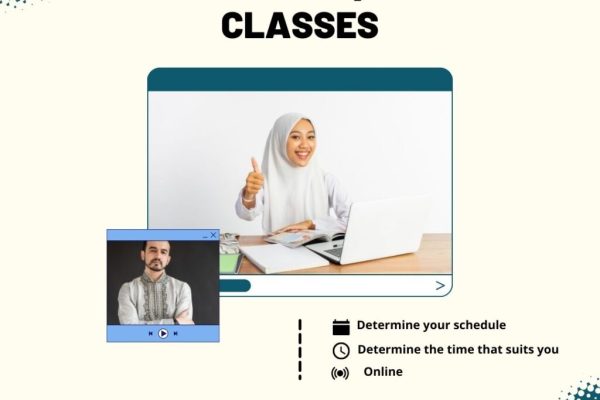Managing academic tasks without access to premium tools, extensive materials, or a personal tutor may feel like climbing a mountain without shoes. However, many students succeed even when their resources are tight. This guide will show you how to handle homework writing with limited resources by offering practical strategies, tools, and expert-recommended methods that maximize what you have without overreliance on costly solutions.
Whether you’re studying at home, attending classes remotely, or navigating university life on a tight budget, these tips will help you unlock the best ways to handle your assignments efficiently. And if you’re working on technical subjects, like programming, seeking targeted support such as C++ homework help can make a significant difference in your understanding and output, even with minimal resources.
Why Students Struggle with Limited Resources
Before we explore solutions, it’s essential to understand what “limited resources” often mean in an academic setting.
Common Limitations Students Face
-
Lack of access to scholarly databases
-
Limited or outdated textbooks
-
Slow or unreliable internet
-
No access to tutors or writing professionals
-
Distracting home environments with no dedicated study space
These challenges impact focus, reduce the quality of research, and often leave students feeling stuck. But with the right approach, you can still excel.
Use Free and Credible Online Resources
One of the best ways to manage your assignments with minimal materials is by making the most of free, reputable sources available on the internet.
Free Academic Databases
If you’re wondering how to handle homework writing with limited resources, start with open-access academic platforms such as:
-
Google Scholar – a widely trusted search engine for scholarly content
-
ERIC – perfect for education-related materials
-
PubMed Central – useful for science and health subjects
-
JSTOR Open Content – contains thousands of free journals and articles
These platforms give you free access to reliable materials often used by top experts and researchers.
Free Writing and Editing Tools
You don’t need premium software to produce polished assignments. These free tools offer immense value:
-
Grammarly (free version) – for grammar and clarity checks
-
Hemingway App – helps improve sentence structure and readability
-
Google Docs – for writing, formatting, and real-time collaboration
Using these tools is a smart way to improve your writing without investing in expensive services.
Create an Efficient Homework Strategy
With limited resources, being organized and methodical is even more critical.
Prioritize by Urgency and Importance
Use a basic planner or digital calendar to:
-
List your homework assignments
-
Highlight due dates and weight (i.e., how much they count toward your grade)
-
Schedule blocks of focused work time
Even the best professionals use time-blocking and task prioritization for productivity. You can do the same.
Break Work Into Smaller Tasks
Don’t aim to finish everything in one sitting. Divide your work as follows:
-
Day 1: Research
-
Day 2: Outline
-
Day 3: Introduction
-
Day 4: Main content
-
Day 5: Editing and proofreading
This strategy helps you stay consistent and avoid burnout.
Join Online Study Groups and Communities
When you lack access to tutors or expert help services, community-driven support can be a great alternative.
Peer Forums and Subreddits
Websites like Reddit (r/HomeworkHelp) and Quora allow you to ask questions and get advice from other students or even subject experts. Be respectful and clear when posting for the best responses.
Discord and University Study Groups
Many schools host online study spaces via Discord, Slack, or university forums. Joining or creating one can give you real-time help, resources, and accountability from peers.
Enroll in Free Online Courses
If your textbook or lecture doesn’t provide enough depth, free online courses can fill in the gap.
Top Platforms Offering Free Courses
-
Khan Academy – High school and basic college-level subjects
-
Coursera (Free courses) – University-level instruction
-
edX – Courses from top universities
-
MIT OpenCourseWare – Engineering, science, and more
Many of these include video lectures, readings, and practice exercises. Learning from professionals without paying anything is one of the best options available today.
Make the Most of Local Libraries
Whether digital or physical, libraries offer more than books they’re a goldmine for resource-limited students.
Library Services You Should Use
-
Free internet access
-
Borrowable textbooks and academic journals
-
Study rooms for focused work
-
Librarian support for research guidance
Librarians are often trained to help students with academic questions. Don’t hesitate to ask for homework help they’re professionals too.
Focus on Critical Thinking and Analysis
Even with limited material, developing your analytical thinking can elevate your work quality.
Analyze Instead of Memorizing
Learn how to evaluate sources, build logical arguments, and present clear viewpoints. Focus on:
-
Main ideas
-
Evidence strength
-
Counterarguments
-
Logical structure
Even when writing with limited resources, sharpening your reasoning skills can set your assignments apart.
Use Argument Maps and Outlines
Use free tools like MindMup or Coggle to visually organize your essay or research paper structure. These help you plan your work clearly before writing saving time and improving flow.
When to Seek Affordable Professional Help
Sometimes, doing everything yourself isn’t enough especially with complicated assignments.
Choose Affordable and Trustworthy Services
If you’re considering hiring online help, look for platforms that offer:
-
Pay-per-task or question options
-
Transparent pricing
-
Help from subject-specific professionals
-
Reviews and guarantees of originality
You don’t have to spend a fortune. The best academic help services offer flexible, student-friendly packages that fit your needs and budget.
Improve Through Self-Reflection
Learning from feedback is free and incredibly effective in building long-term academic success.
Start a Learning Journal
Track your performance and growth with a simple journal or Google Doc. Include:
-
Assignment feedback
-
Grammar errors to watch for
-
Concepts that need review
-
Research tricks that worked well
By reflecting on past assignments, you create a personalized improvement system. It’s something even top experts do to sharpen their skills.
Stay Motivated Despite Challenges
Limited resources can be discouraging, but your mindset matters just as much.
Tips to Stay Positive and Productive
-
Set realistic daily or weekly goals
-
Reward yourself after completing work
-
Visualize your long-term academic goals
-
Take breaks and get enough rest
Remember, your efforts count. Even small progress adds up over time.
Conclusion: Resourcefulness Is Your Advantage
Learning how to handle homework writing with limited resources is more than a survival strategy it’s a valuable life skill. By tapping into free online platforms, organizing your time, seeking affordable help when needed, and improving critical thinking, you can turn obstacles into opportunities.
The best students and even many experts started with very little. What made them succeed was their ability to adapt, stay focused, and make the most of what they had.
So whether you’re writing from a public library, on a borrowed laptop, or with an unstable Wi-Fi connection, know this: your determination and creativity are the most powerful tools you have. Keep going you’ve got this.









